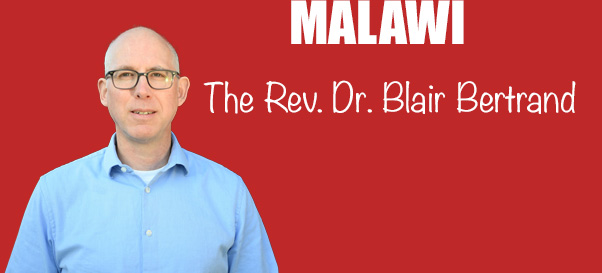
She sat beside me looking beautiful. Her skin was dark and smooth, smile gorgeous, teeth bright white. Her clothing was old, and nothing matched. But she looked so strong and elegant. And it all felt completely incongruous. This mother spoke of hunger, weakness, and devastation. My mind struggled to reconcile the incompatibilities of her appearance, her smile and the words she spoke. Amid deep poverty, fear and suffering, I saw beauty and strength. Where I would have expected tears, I found a mother who—miraculously—could still smile. In the darkness, there was light, and to make sense of it all, I had to turn to God.
After the Rains
She has no house. The floods collapsed it in the middle of the night, along with her latrine. Everything was washed away—her farm equipment, her clothing, her bedding, her food, her kitchen items, and her crops. Her family had last eaten the day before, and the meal was only maize porridge. They didn’t even have enough maize flour to make nsima—the traditional, thicker staple of Malawi—instead theirs was watered down into porridge. The green vegetables they ate with the porridge were weeds found in the bush.
I met her last week. I conducted the interview with my colleague, who was close to tears by the time we finished asking questions. I didn’t let myself feel the impact of what she said. It was too difficult to process. I had several more interviews to conduct. My tears didn’t come until much later.
I spent two days last week and three days this week in remote villages in two of the hardest hit districts in Malawi—Chikwawa and Phalombe—working on a food distribution project with the Mennonite Central Committee (MCC) and its implementing partner, the Brethren in Christ Church (BICC). I was with Bishop Kamoto of the BICC and our Project Manager, Pastor Kalinde: two very wise, competent, compassionate and faithful men.
Although the days were long and at times stressful and emotionally overwhelming, they were also rewarding and full of adventure. Last week our car got stuck in the mud in Chikwawa. My son, who had come along since he was on Easter Break, took off his shoes, rolled up his pants, and started walking around in the mud to try to help Kamoto (who was driving). Then the rest of us (Kalinde, a community member, and I) all took our shoes off and got out of the car. The water and the mud were surprisingly hot. Kamoto tried going forward and then backwards, but it wasn’t going well. Then a man on a bicycle came along and we asked for his help. With some of us pushing and others guiding Kamoto, we got out of the mud and all had a good laugh about the mud spatters on Kalinde’s white shirt, our muddy feet, and the adventures of travelling in rural Malawi.
Surveying Reality
Last week we were preparing for the actual distribution by verifying the beneficiary lists, explaining the distribution process, giving out vouchers, and explaining what will be provided. We also conducted a baseline study. In other words, we surveyed people to find out how the flooding affected them and what they need most now. We sat and listened to their stories. Pastor Kalinde and I conducted the baseline survey together. The most difficult interviews were in Chikwawa district. Almost everyone we met in Chikwawa lost their house and their latrine. They explained that they were living in make-shift shelters constructed out of grass or other materials they could find. Many were injured during the flooding because their brick houses collapsed at night with the walls falling inward. They lost everything in their homes. They also lost their crops, which were just weeks away from harvest.
One of our survey questions was how many meals the members of the household had eaten in the last 24 hours. Another question was whether the children were getting enough food. The last question was a “dietary diversity” question that measures the variety of foods that people are eating. We had to modify these questions. They were too difficult to ask. No one we interviewed was eating more than once every 24 hours. They said they eat in the afternoon or evening so that they can sleep at night. Yes, they were hungry and weak. We stopped asking that question. And the third question became unnecessary. Everyone was eating maize flour (nsima) and weeds. No one had any protein to eat. Not even the children.
Some people we interviewed were very reticent. Some smiled as they talked, but they said little. However, even the most reserved gesticulated while describing their house collapsing in the night. They became animated when recounting the horror of what happened in the darkness while the torrential rain drowned out all other noise, the water flooded their homes and the walls fell all around them. Some were injured. One woman, whose sleeping baby was tied to her back during the interview, described how a brick had hit her baby in the head when the house was collapsing.
Orphans as Head of Household
For me, the most difficult interview was with the tiny, 12-year-old girl. I was told that she is an orphan. I asked to interview her. She didn’t want to talk. With some coaxing, we learned that her mother died and then her father left. She had been living in a house with her 3 younger siblings, but the house collapsed with the flooding. Now she is living with an aunt. But the fact that the aunt didn’t come to receive the voucher indicates that this girl is the head of the household for her 3 younger siblings and the aunt is not helping much. What affected me most was the lack of emotion in the girl. It was as if her spirit was dead, but her body was still alive. Her childhood, and perhaps her joy, had been ripped from her.
She was there this week when we went back to distribute food and plastic sheets. I had looked around when we first arrived and couldn’t see her. I had assumed that her aunt came instead. Then when I was receiving vouchers and checking off people as they thumb-printed their vouchers, I looked up, and there she was. I quickly called Kalinde over so that he could ask her if she had anyone there to help her get the 50kg bag of maize flour home. She pointed to a group of women waiting around a cart and said that she was with them. She seemed so fragile, and I desperately wanted to give her more. Quickly, before she left the line-up, I gave her a hug. I felt like she needed so much more than food. I can’t speak Chichewa very well, and I didn’t know how to ask for her permission before I hugged her. I hoped it was OK. I hoped I didn’t make her feel uncomfortable, but it was the only thing I had to offer her—some love. I had to hold back my tears as she walked away, all alone.
What Next?
Most worrisome was the thought of the next 12 months. The people I met in Chikwawa are subsistence farmers, but they lost their food and almost all their possessions including their farming equipment in the floods. They have no seeds to re-plant their crops. Even if we gave them seeds and farming equipment, the land is already too dry to re-plant. It is the dry season now, and they are too far from a water source to irrigate.
The people I met need more than a two-month distribution project. Yes, food is urgently needed. However, with MCC I will also be conducting a Needs Assessment of this area and making recommendations for future potential projects in Malawi. These people need food, but they also need seeds, farming tools, irrigation, clothing, pots, blankets, livelihood diversification, farming training, and more.
I pray that by your grace, Oh God, the beautiful mother, the 12-year-old girl, the widows, the mothers and fathers, the grandparents, and the children, will not only survive until the next harvest but will find ways to thrive and increase the sustainability of their livelihoods and their resilience in the face of climate change.
I pray that international organizations responding to the flooding in Malawi will not only provide short-term relief but also support longer-term projects with things like seeds, farming equipment, irrigation, farmer training and crop diversification.
I pray that you, Oh God, will act in a resurrection way to miraculously bring something from nothing; that out of loss and devastation you will bring new life.


